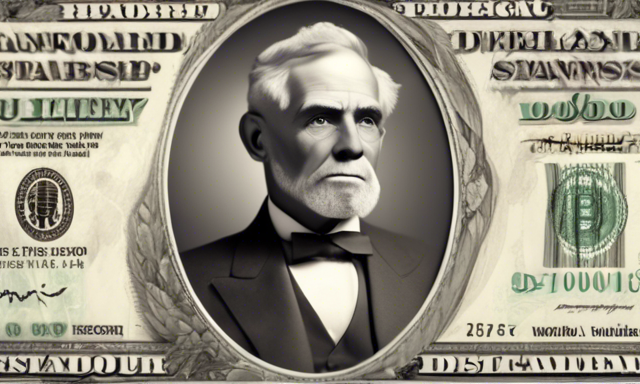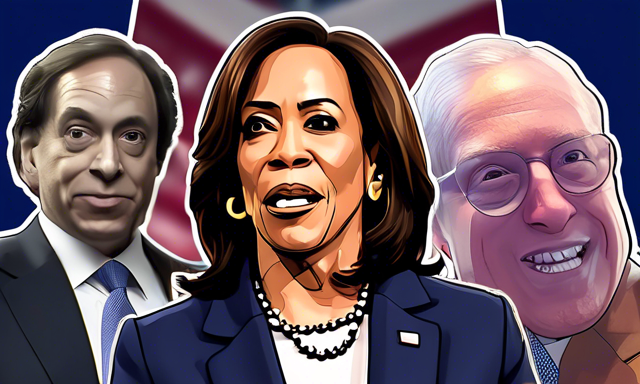Insights from Renowned Economist on Inflation and Fiscal Policies
On August 16, 2024, David Lin engaged in a discussion with John Cochrane, a distinguished economist and Senior Fellow at Stanford University’s Hoover Institution. Cochrane delved into a variety of economic topics, shedding light on inflation, fiscal measures, and the looming specter of hyperinflation.
Dispelling the Myths Surrounding Price Gouging and Inflation
- Cochrane started by debunking prevalent political narratives concerning price gouging and its connection to inflation.
- He criticized the notion that inflation is primarily driven by corporations engaging in price gouging, asserting it to be flawed economic reasoning.
- According to Cochrane, inflation is essentially a monetary phenomenon triggered by excessive money printing and circulation, rather than corporate greed.
- He emphasized that the sudden surge in corporate greed in 2021, leading to inflation, is an irrational concept.
- Cochrane highlighted that grocery stores, which operate on slim profit margins, are unlikely to be the instigators of inflationary trends.
The Downfalls of Implementing Price Controls
- Cochrane elaborated on the potential drawbacks of enacting price controls, an idea entertained by some policymakers as a remedy to escalating costs.
- He argued that while price controls might seem to suppress inflation temporarily on paper, they fail to address fundamental issues and often result in adverse economic outcomes such as shortages and reduced product quality.
- Additionally, Cochrane cautioned that implementing price controls could disrupt markets and pave the way for more severe economic challenges in the future.
Inflation: A Consequence of Fiscal and Monetary Policies
- When questioned about the optimal inflation rate, Cochrane advocated for zero inflation, challenging the widely held belief that a 2% inflation rate is advantageous.
- He argued that the Federal Reserve’s primary goal of ensuring price stability should involve maintaining a consistent price level rather than permitting a gradual erosion of the dollar’s value.
- Cochrane contended that the recent surge in inflation was not solely attributable to Federal Reserve strategies but also stemmed from expansive fiscal policies involving substantial borrowing and spending, driving up demand and prices.
The Vulnerability of the Current Economic Landscape
- Expressing unease about the fragility of the present economic scenario, Cochrane drew parallels to the inflation surge experienced in the late 1970s.
- He cautioned that any impending recession or global crisis could instigate another inflationary wave, especially if the government resorts to additional borrowing and expenditure.
- Cochrane underscored the significance of sound fiscal and monetary policies in upholding confidence in the stability of the U.S. government to avert a potential uncontrollable inflation crisis.
Exploring the Debate on Reverting to the Gold Standard
- Addressing calls for a return to the gold standard, Cochrane dismissed the concept as impractical in the context of the modern economy.
- While acknowledging the historical role of the gold standard in curbing inflation by restricting the government’s money-printing capabilities, he highlighted its drawbacks, including gold price volatility and the deflationary pressures it may generate.
- He argued that the gold standard is incompatible with a contemporary economy that no longer relies on gold coins as a medium of exchange.
The Specter of Hyperinflation and Remedial Measures
- Cochrane addressed concerns surrounding hyperinflation, fueled by the escalating U.S. debt levels and persistent deficits.
- While expressing hope that hyperinflation remains improbable, he cautioned that the U.S. is not immune to the triggers responsible for hyperinflation in other nations like Argentina.
- He emphasized that hyperinflation essentially results from fiscal mismanagement, occurring when governments resort to printing money to cover unsustainable deficits, advocating rigorous fiscal reforms to avert such a crisis.
The Federal Reserve’s Role and Impact on Recessions
- In his closing statements, Cochrane reflected on the causes of recessions, echoing Janet Yellen’s viewpoint that financial imbalances and Federal Reserve policies primarily drive economic cycles.
- He highlighted that while external shocks triggered the COVID-19 recession, most U.S. recessions post-World War II were linked to Federal Reserve actions, either through errors or intentional tightening of monetary policies.
- Cochrane stressed the necessity of adopting a more rule-based approach to monetary policy to prevent the Federal Reserve from overreacting and inadvertently perpetuating recessions.





 By
By
 By
By

 By
By

 By
By